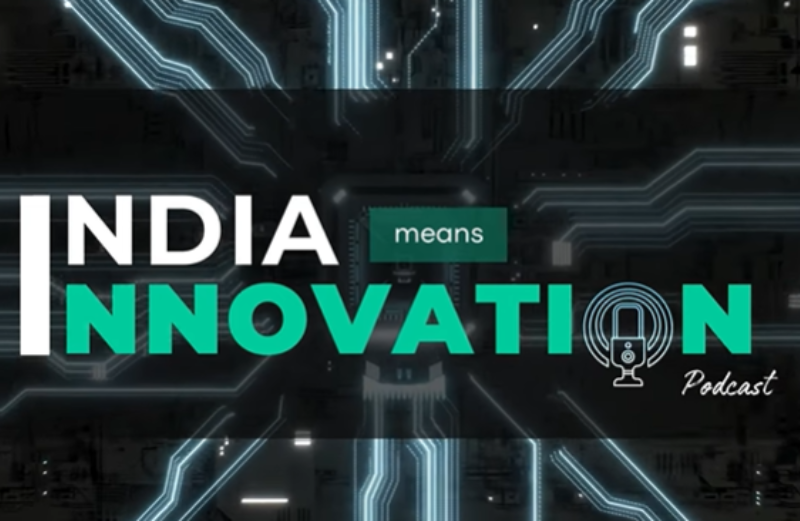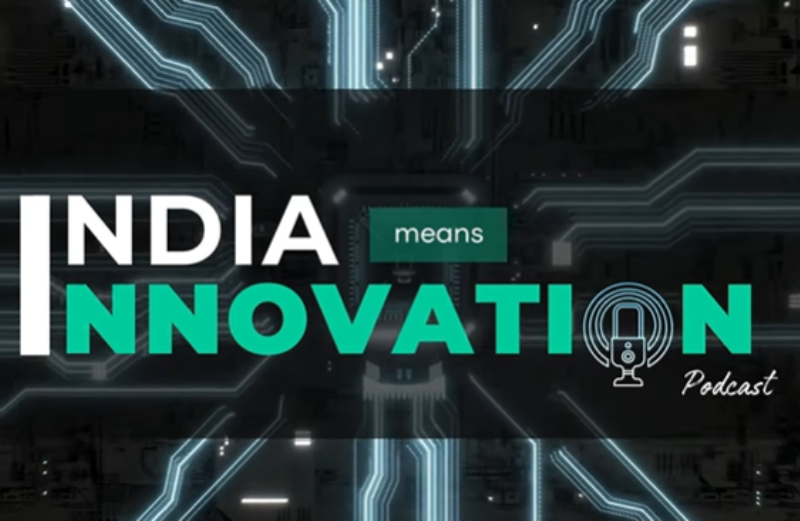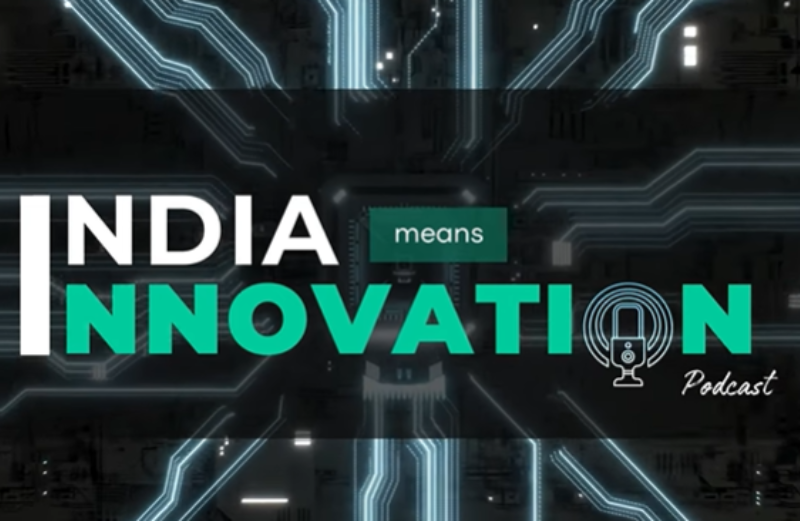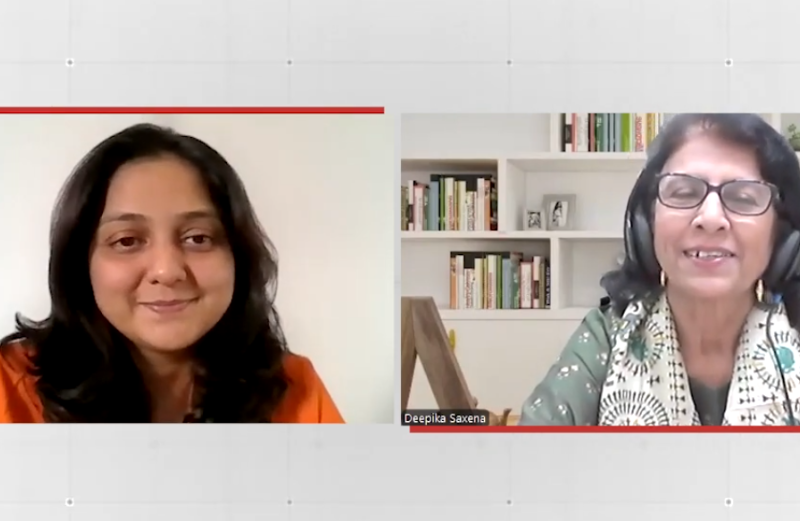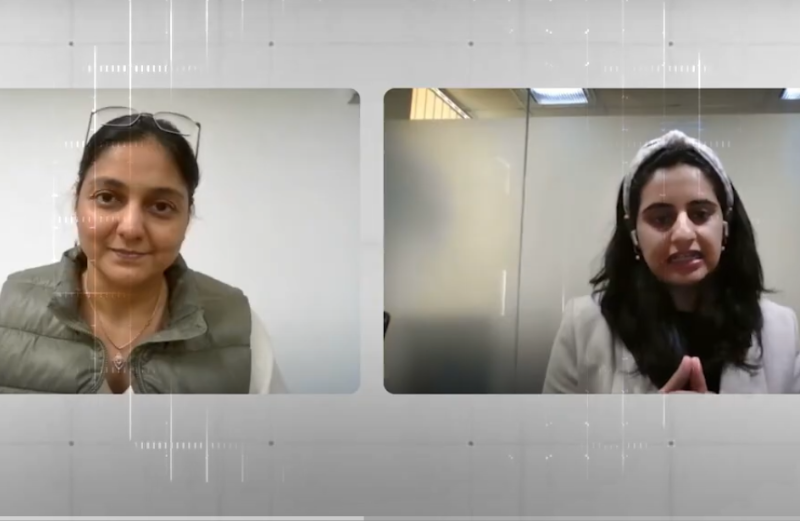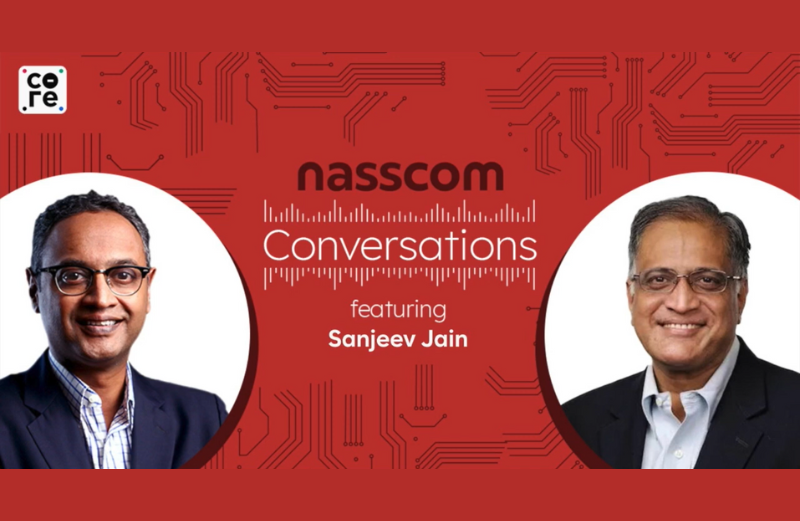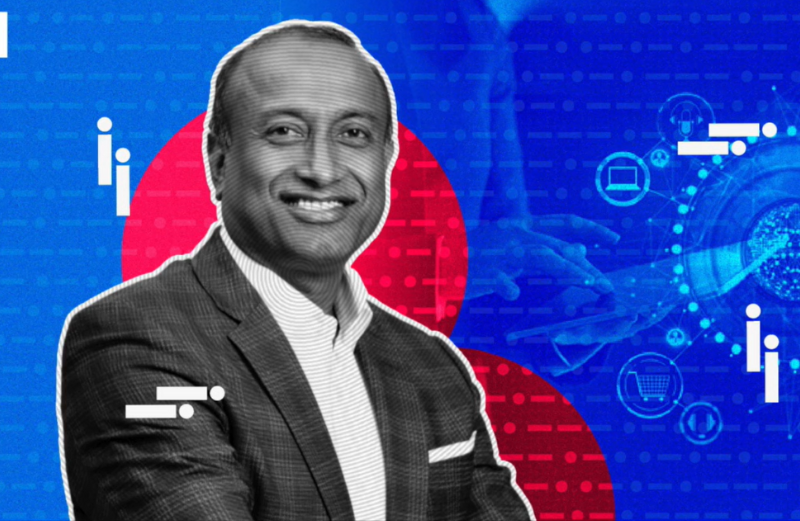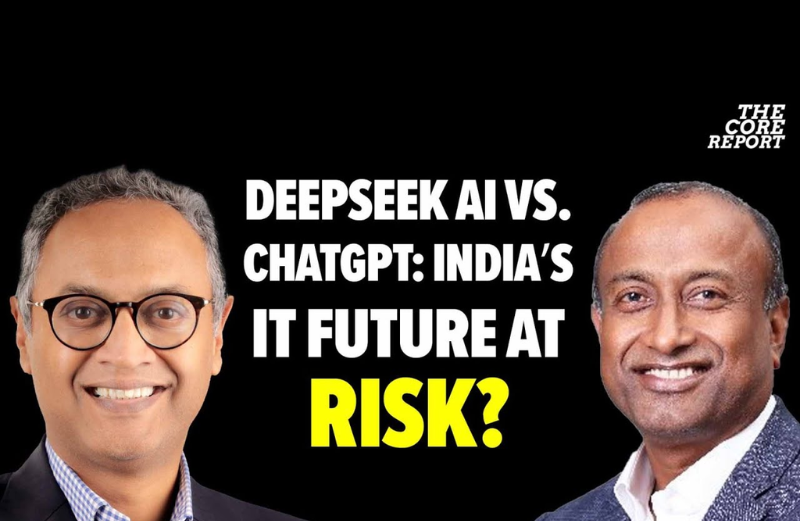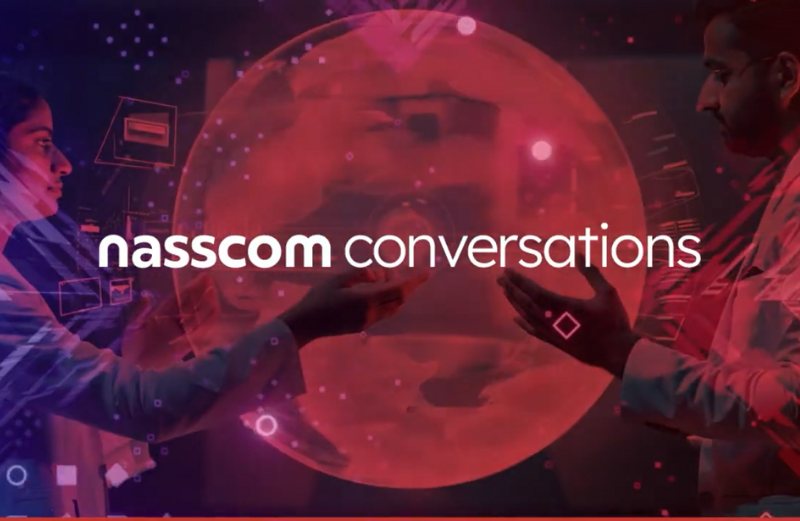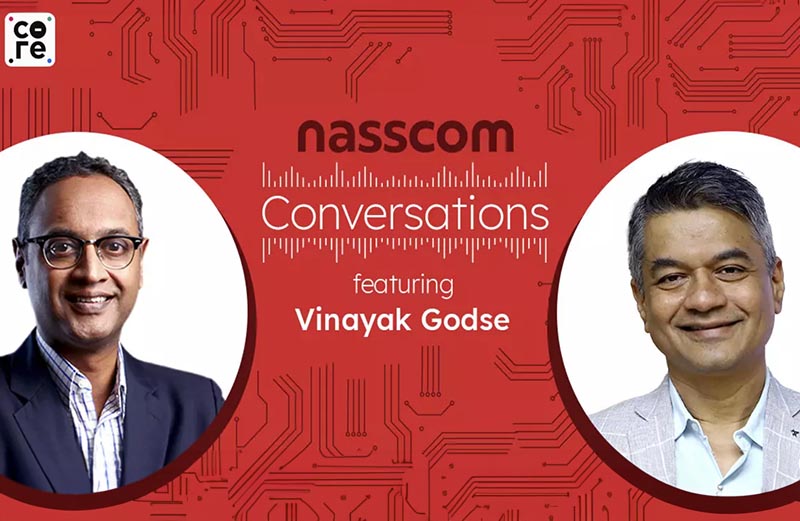Transcript Disclaimer: This transcript has been generated using automated tools and reviewed by a human. However, some errors may still be present. For complete accuracy, please refer to the original audio.
00:00:05 GOVINDRAJ ETHIRAJ: Noshir, thank you so much for joining me. So there's this big question, which is can India lead in a globally competitive world in artificial intelligence? So in leading up to that answer, I guess we've got to first say where exactly we are in that race and then maybe whether we can win or not.
00:00:24 NOSHIR KAKA: So I think to skip to the the preamble and to start up with this to say we have to, OK, artificial intelligence is not just like any other technology in my mind. It is a technology that enables humankind and it enables other technologies. So it is not an option for whether it's India or any other country, it's not an option, but you have to put your best foot forward to win. Do I believe we have got the ingredients and we have the potential to win? Absolutely. Why? Because no matter what you may say, the underlying technology develops, is developed, or depends on technical talent. Even though many people say that this is an industry, that this is a technology that actually does away with the need for that. I actually think if you look at all the coding stats, the amount of code that's now put into GitHub has doubled in the last year. 50% of that is machine LED, but it doesn't mean that the human code has actually gone down or even decreased its scope of growth, right? So the old adage of as as things get cheaper, you write do more of it, right? Continues here. So number one, I think software is going to continue to read the world's services is actually getting enabled by software and AI is at the back of that. Second is a country outside of the talent pool. We are one of the greatest entities in the world when it comes to data, right? India has some of the largest data sets in the world. We need to get the right regulation. We need to get the right checks and balances. But if you can sandbox that data to prove to do innovation, that will be a massive leap forward, right? And I think what the government is doing, whether it's a data embassies idea or other ideas, so very, very powerful ideas to go into that area. Yes, We do not have as yet the equivalent of the LLM answer. The China has proven that may not be the only answer, right? Yes. We don't as yet have the power or the data centers. I think those can be got. But talent and data are vital. India has those. We have to build on it.
00:02:30 GOVINDRAJ ETHIRAJ: Right, so I'm I'm going to come to the data and the India part in a moment. But when you say winning or we have no choice but to win, which aspect of this race or game are you talking about? Game specifically AI is.
00:02:43 NOSHIR KAKA: Essentially nothing but applied intelligence, right? And if you, if you look at what it is now able to do, right, you are able to design the next chip faster, you are able to respond to a medical emergency better, right? These are fundamental things that, you know, all economies want to do, right? So new economy is going to say that, look, I want to have less intelligence, right? If anything, they say I want to, I want to have the cutting edge intelligence, right? And that's why India has to do because this is a technology, as I said, enables other technologies, enables humankind. We can't be left behind on that. It's almost in my mind like a factor of production.
00:03:21 GOVINDRAJ ETHIRAJ: So if to build on your healthcare example, so let's say if you're saying AI for scans, radiology and therefore we need to make sure that we get the best because we have a healthcare problem in our country when it comes to capacity. So is that what you're broadly suggesting?
00:03:35 NOSHIR KAKA: Yeah, I mean, radiology is a great example. It's been there for many years because people said radiologists will be out of business. Actually, they're probably one of the highest paid professions right now, right? Because of ones who have learned to work with technology and dramatically improve their productivity are just winning.
00:03:52 GOVINDRAJ ETHIRAJ: OK. So I'll come to the skill set in a moment. So when you talk about the power of data and the fact that countries like India have a lot of it, so which data set are we talking about and why are we not able to do or use it to the extent that you're thinking about?
00:04:07 NOSHIR KAKA: So when you think about the platforms that the government has built, right, whether it's Aadhaar, Ubi and so on, right, these are some of the largest, if not the largest data sets in the, in the world, right? And full credit to the government. I mean, you built them in a short span of time. And most governments that I know around the world don't build working software. They don't build working software at this price point, at this scale, right? So I think we've got a unique set of assets. There are about 20, two of those platforms, right? So data, whether you think about authenticated, you know, properly with proper security and probably non personalized data to actually use that or whether even business data like enterprise data, economic data, weather data, right? All of these can make a massive difference if they are enabled, right? If you allow. And that's what the government is trying to do again with the data sets initiative. If they can do that and get that out and get the right regulations to help protect you, I think India will be at the forefront of AI as well. So.
00:05:10 GOVINDRAJ ETHIRAJ: If you can illustrate that with examples that you've seen elsewhere where you said, OK, here was let's say country A which use data efficiently for maybe civic delivery or something else and where you feel India could be also following through.
00:05:23 NOSHIR KAKA: So I wouldn't like to take any example of an external country or a category, I'll take even just India, right? If you look at our farm data today, right? The soil data, right, the weather data, right? The, you can pretty much predict the pest outbreak anywhere in the world, right? With, with a few data points like that. Imagine that in the hands of farmers in India, right? Where you can actually predict an outbreak of a particular pest and actually even prevent it because you pretty much know with a certain type of crop pattern, with a certain type of weather, with a certain type of year, right? Chances are the prevalence of this is particularly high, right? Imagine that for the farmer, right? And that enables economic output at a level that we don't see anywhere else known. Look at you and I, right? In preparing for this, I'm sure both of us have used some form of AI right behind it, which gives you so much better insight into how I think or how I should think and hopefully where I'm right and hopefully where I'm wrong.
00:06:29 GOVINDRAJ ETHIRAJ: Right. So when you think about, you know, specific verticals and I'll come to the India part in a second, but how important are skills in ensuring that we are able to mine this data? And let me qualify that the examples that you used, agriculture, there could be a problem today of insufficient sensors. We are not able to. I mean we want more data, but we are not able to. On the other hand, there may be areas like let's say private sector banks where maybe the level of data mining or quality of data mining is very high. So how would you rank the two and where would you say are the gaps in the scales and so on? It's a very.
00:07:04 NOSHIR KAKA: Good point. We have, we have studied a lot of enterprises globally, at least on the enterprise side and we have looked at the ones that have actually invested behind and actually got their data architecture right. Now we don't know whether causation, causality, leave that aside, but they consistently outperform their peers and not marginally. We were talking 5060% more value addition or value creation, right, for those who have invested in their own internal or external data sets. So what we are seeing is that companies who recognize the power of this as a management decision tool are just intuitively going to do better than the world where machines are able to manipulate these vast amounts of data. So as in, so you said industries take telecom, right? For years we've thought telecom, well, it's kind of a sleepy industry. India is booming, but kind of worldly. That's kind of a sleepy industry. You look at what leading telcos are doing around the network of the future. You look at leading nettles around store of the future. You look around, you know them sending truck rolls to your home before the fault is even diagnosed, right? Because they say, we think that this particular piece of equipment either on this line or in your home is actually going to fail. So we're going to replace it before that, right? That kind of capability we never had and now you do. So the companies that have naturally been wired up to actually be clear about data, right? Telcos, pharmaceutical companies, banks to a certain extent of obviously encumbered by regulation and so on. The ones who actually invested in the data architecture or winning.
00:08:41 GOVINDRAJ ETHIRAJ: So what you're saying also should be apparent and obvious to most people, but yet only some have done it and that too well, and others have not. Why is that?
00:08:51 NOSHIR KAKA: Well, the old saying goes and not the old saying, like in 2024, there's a saying that says technology delivered people did not, right? And so I go back to saying what I said for many, many years, which is actually the rate limiting factor on the use of technology as humans, right? And if you and I had to, you know, let's say go out and actually talk, do a conversation like this or go out and meet a client or, you know, write a note or something, you would actually prioritize that. You wouldn't prioritize your data architecture, right? That's kind of, that's not mine, right? But companies that spend their time doing that consistently make better decisions that allow them to outperform. And so it is the choice of where you tend to put your time is going to be the differentiator. And if you get that right, chances are you won't have to make many more decisions after that.
00:09:45 GOVINDRAJ ETHIRAJ: Right. And then talk to us about the skills in this context, maybe enterprise data architecture, but in general as well. And when it comes to the AI waste that we were talking about and where we are as India and where we should be focusing our energies and.
00:09:59 NOSHIR KAKA: It's a good question for all our kids, right? Because we all get asked what are the, what is actually going to retain? So I think the greatest skill that we have to work on is the skill of working with machines, right? And I see a lot of parents and I see a lot of sometimes even teachers, rightfully, because in some cases you want to stretch the natural thinking mechanism of a child, right? So that's fine. But if you are not encouraging your children, your coworkers, to actually work with technology, you are condemning them to actually be significantly less productive than their peers, right? And so I can't tell you whether in the future radiology will be a great profession or a lousy profession. But what I can tell you is that if you are somebody who works with AI versus works doesn't work with AI in radiology, the one with AI will out compete you in a very short period of time.
00:10:51 GOVINDRAJ ETHIRAJ: For those who are, I mean, this is for people, let's say, who are maybe younger and saying, OK, what should I do or not do? But what about, you know, the many millions who are already the?
00:10:59 NOSHIR KAKA: Old dinosaurs like you and me, Yeah, actually think about just in the last 2-3 years what has happened in the world of AI. You've gone to much larger context windows, which means memory has dramatically. You've gone to reasoning models, right? Earlier you said that the model hallucinates. Now you're saying it's able, capable of reasoning. You've gone to the level of data sets that you actually never had before to actually exploit. You've gone to actually points of view where you're going to actually action the outcome with agents, right? And this is all happened in three years. My God, your profession, my profession for as long as we're here, even the next few years is going to be dramatically shaped by this technology. So it's not just for our children.
00:11:42 GOVINDRAJ ETHIRAJ: Yeah. And when you look at the, you know, let's say the innovation ecosystem and entrepreneurs and entrepreneurship and the role they play versus let's say how large organizations can create some of that energy within, how are you seeing? How are you seeing this divide? If so, or is it converging?
00:11:59 NOSHIR KAKA: It is largely dependent on the familiarity and intellect of the leadership team. I think if you're an incumbent large organization versus you're a startup, right? The difference really is in what the top management thing, how educated and and how much they use the top management team uses AI. If you see a top management team that is actually actively using AI, right, you will know that company will do well, right? If you have a top management team that talks about AI, get somebody else to do AI, outsources it to a third party or does it with their own digital team that doesn't worry about it. You will see that company forever condemned to the issue that we talked about, which is technology doesn't have ROI, right? So if the top team doesn't do it, unfortunately you will not get the impact.
00:12:50 GOVINDRAJ ETHIRAJ: And are they good examples where you've seen this? I mean, you may not quote names, but where you felt that, OK, here is an instance where the top management, the board, everyone was really, you know, galvanized and unified on this and then you could see the results.
00:13:06 NOSHIR KAKA: Well, in one of the banks that we spoke to earlier, I think I would not taking names right. But if you look at what some of them have done right, that kind of push, I mean Piyush in DBS, right. If you think about how passionate he is about technology and it's not, it's not been easy for DBS, but if you think about how passionate he is, it's massive. We can see the difference.
00:13:29 GOVINDRAJ ETHIRAJ: So if you look at now the largest set of problems and we are trying to solve many problems in a, in a developing economy also in a difficult place and time. What would you say are the some of the big challenges that AI could be used for and how to make it and how to do that in a way that's efficient for everyone, including let's say governments and so on?
00:13:52 NOSHIR KAKA: South, you break this up into sort of the citizen government and industry, OK, For industry, there are what we call some really what we call hero problems, right? For example, drug discovery, material discovery, right? We could never do that earlier. Google announcing a project like Nome a year and a half ago where they discovered I think 3,000,000 new compounds that could be stable, compounds that were never discovered earlier, 800 years of PhD research probably or more will go into that, right? So that is at an industry level, you will always find hugely valuable problems to solve that we could never solve earlier. That's one on the citizen side. Like I said, I'd love for the day when work is taken out of a citizen, right? Citizen work, whatever you may be applying for driver's license, filing your income tax returns, right? A lot of that can actually be now should be prefilled based on your footprint or your fingerprint of what what people have done, right? Filing an insurance claim, I don't know the last time you filed it. I tried to file a health insurance claim and I was running around. I'm still running around for a month, right? And that puzzles you, right? So as a citizen, the ability to take non value added workout of your life, massive governments. I think there's an entire way of governing coming ahead of us, right? That has to do with, as the Prime Minister says, more governance, less government, right? But you look at what even the US is doing, right? And whether that's successful or not, keep that aside. But the very fact that you have somebody there who believes that they can actually do the same output with much fewer people, much less effort, just gives you a chance to rethink how how are you thinking about, you know, government services so.
00:15:50 GOVINDRAJ ETHIRAJ: All of this is encompassed in some ways by regulation, or should be in many cases. How are you thinking about where we are on regulation in India again? And what, if so, are some of the areas that we should be focusing more on in order to make things more equitable and, yeah, fair.
00:16:09 NOSHIR KAKA: This is a very, very fast moving space, right? So if you look at the US, China, Estonia, some countries in Europe, right, even India, right, Everyone has come out with regulations. And by the way, I think our regulations are reasonably progressive, right? But they have to be benchmark. They have to be benchmark both on allowing innovation, but also protecting from cybersecurity, privacy, all hallucination, toxicity bias, all of that because we've only talked about the upside of AI. There's equally a downside of AI, right? So making sure that that fine balance between promoting innovation, maybe even in a sandbox environment, but making sure that citizens data and corporate data and government data is well protected. That is the art of that regulation, right? The government I think in India has been progressive, right? For example, I gave you the data embassies idea, right? It will be a huge idea if we can actually get that through.
00:17:09 GOVINDRAJ ETHIRAJ: Right. But when when you talked about, let's say the downsides of AI and yes, we didn't touch too much about that, You talked about things like deep fakes and scams. Is that's the clearly most visible manifestation right now of everything that's wrong with that. Is there something else that we should be looking out for or because we're still firefighting this one? Yeah.
00:17:29 NOSHIR KAKA: When you depend on machines or external agents, right, for insights and actions, your risk goes up exponentially. OK, so while deep freaks and scams is obviously the one that catches the headline right, data poisoning is a very, very It may not even be intended and maybe even, you know, misconstrued data poisoning, right? But if you're giving something the ability to make a decision or worse, take an action, then that data pipeline has to be essentially extraordinarily robust. Why? So the the downside of making sure the, the, the upside of getting the innovation right with the downside of actually making sure that you are safe and protected is, is absolutely key. It's a balance that's very difficult to have.
00:18:26 GOVINDRAJ ETHIRAJ: Right. And Indian IT services companies, how do you in a very broad sense, how would you look at them today in their journey towards using AI and becoming more efficient in doing so?
00:18:38 NOSHIR KAKA: I think all of us are at the very, very early stage. There's no matter whether you're an Indian ID services company or a global enterprise, you're a consulting firm. I think you know, each one of us think we are actually on the path. We have many, many pilots going, few at scale. And our biggest challenge continues to be what I said about companies, right? Essentially it's how fast can we retool our leadership team, How fast can we retool our management team, right? It's not the development it our younger folks pick this up really quickly, right? It's the folks who are in positions of authority or decision making or whatever you want to call it that have to be coax cajole taught much more than our younger tools. So if you raise the metabolic pace of that, I think you'll get a lot more impact. If you ask me today in IT services, we are scratching the surface. We have small efforts either. There's no question about it. In pilot situations, we are seeing dramatic productivity increase. At scale, it's few, but the few and far between who have done at scale deployments in general AI in their estate have seen dramatic impact. And back to the point, the fast movers will get disproportionate advantage because if I can go out and quote on a large deal, 3040% less than somebody else, I'm going to win that, yeah.
00:20:06 GOVINDRAJ ETHIRAJ: Because you're going to deliver faster as well. So last question, what would you tell or what would your words be to let's say a CEO of a largish enterprise who asks you, I want to bring in AI and find how AI can help me. So I'm sure that has many many answers, but what would be your the top level answer?
00:20:25 NOSHIR KAKA: Well, my one line answer would always be prepare to be disappointed in year 1 and year 2 and prepare. Prepare. If you didn't do that, if you didn't go through that disappointment, prepare to be terrified in Year 3.
00:20:36 GOVINDRAJ ETHIRAJ: Sir, thank you so much for speaking with me.

